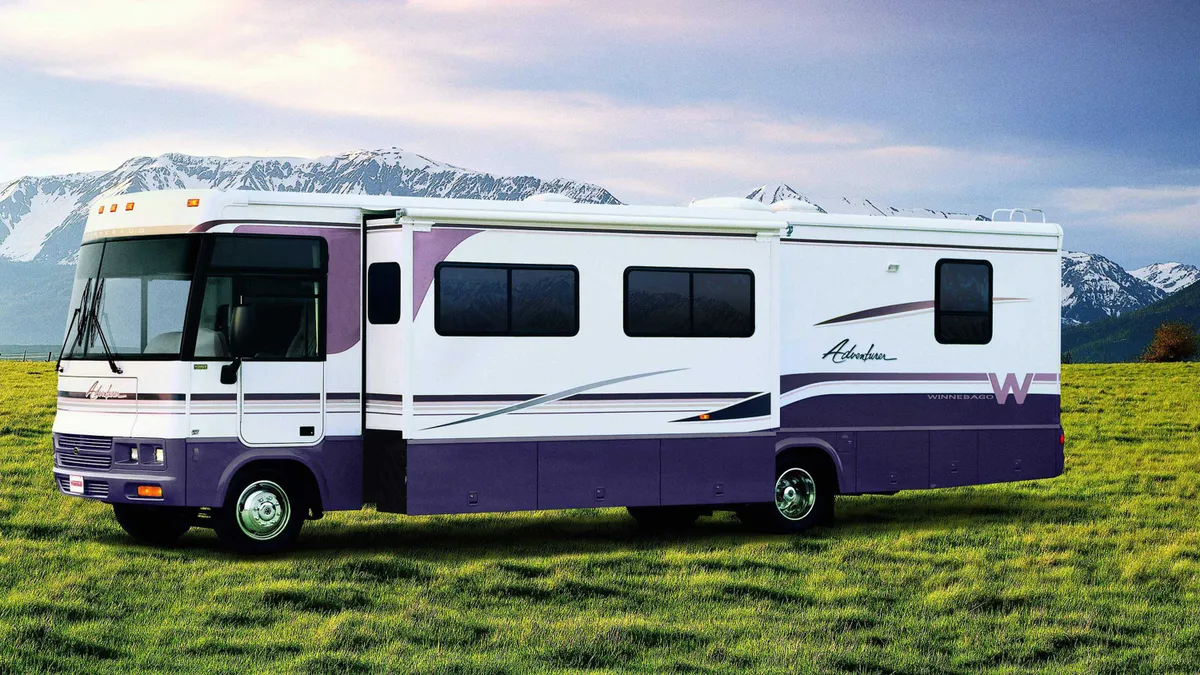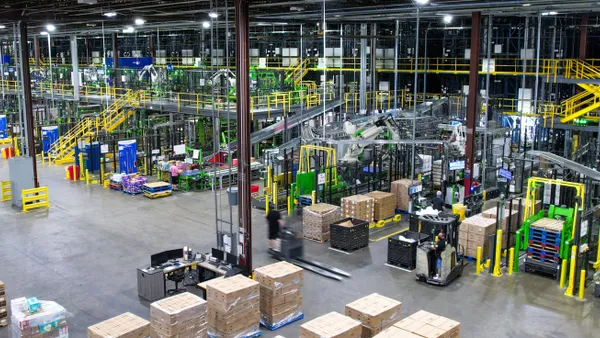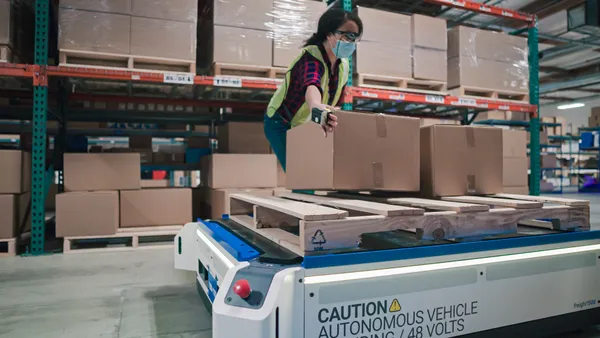Dive Brief:
- Winnebago Industries, the motorhome manufacturer, is working to increase production after its backlog reached record levels amid high consumer demand, company executives said on a recent earnings call.
- The company's backlog in its towable segment reached $1.5 billion, a 17% uptick over the previous quarter, CFO Bryan Hughes said. Backlog in the motorhome segment reached another record of $2.2 billion, an increase of 323% YoY and an increase of 21% versus the previous quarter.
- "We tend to like to see the backlog be mostly focused on the next six months, albeit obviously, mathematically right now we have a backlog that is arguably almost a year's worth of demand stated from our dealers," CEO Michael Happe said on the earnings call.
High demand for motorhomes leads to backlog
Dive Insight:
High demand for Winnebagos is just the latest example of the bullwhip effect in action over the last 15 months as companies have dealt with dramatic demand swings.
Winnebago is responding by increasing its production levels, Happe said. The company did suspend production in the early part of the pandemic, but executives didn't outline what impact this specifically had on the backlog.
"Though catalyzed undoubtedly by the onset of the pandemic, demand for our products has remained strong as the vaccine rollout and gradual reopening across North America has picked up," he said. "Our team has stepped up production output as a result."
As the company's backlog grows, it is sticking by its methodology that requires a customer order to be placed before production begins.
"Our enterprise-wide build-to-order production approach also continues to serve us well, as we remain disciplined considering the ongoing supply chain challenges," Happe said.
Some manufacturers, including Polaris, have partially completed products and sent them to dealerships where they will finish the product when components arrive. But Winnebago doesn't plan to take a similar approach.
"We are very committed to not shipping our dealers' incomplete product and asking them to finish assembly on site, that's a philosophy that we are not a fan of," Happe said. "We will ship them complete high quality units as soon as we are able to."
The company is planning to invest in ways to increase production to keep up with demand, but he noted that supply chain constraints are currently holding back "operations from reaching full production capacity."
He did not specify what constraints the company is facing, but many automotive manufacturers have been dealing with a shortage of semiconductors that is affecting production levels.
Hughes also pointed to the late-winter storm in Texas and the blockage of the Suez canal as two issues that have hampered its access to "certain components."
Winnebago did not provide a figure to outline the impact on the delivery time that has resulted from its backlog, but Happe noted some customer orders had been canceled as a result, though he underscored that "the high, high, high majority of retail orders are indeed intact."
"We are not pleased that the backlog delivery time is as long as it is projected to be," he said. "And that is why you're hearing us talk about some of the capacity expansion investments that we're making in our business that should come online in the next probably nine to 18-months to help us start to work that down."
This investment will include "building new facilities, as well as reengineering existing business processes, operational flow or building redesigns," Happe said, adding that every existing facility has had its production capacity increased "through continuous improvement initiatives."
This story was first published in our weekly newsletter, Supply Chain Dive: Operations. Sign up here.















